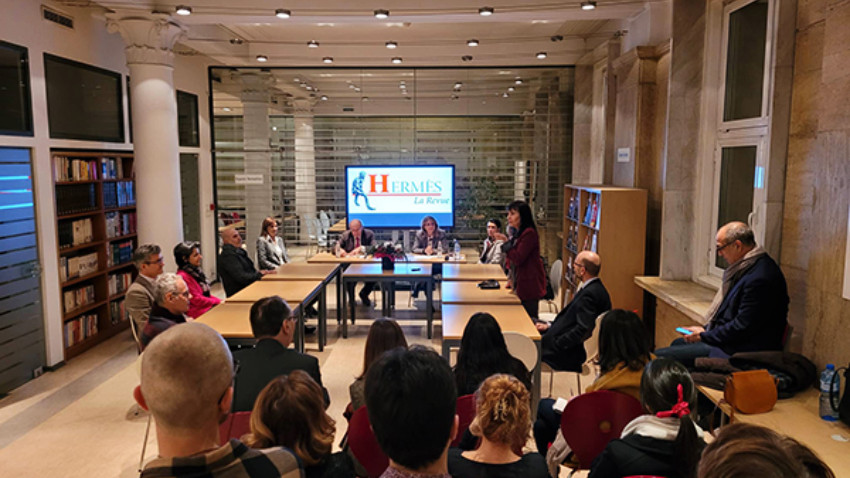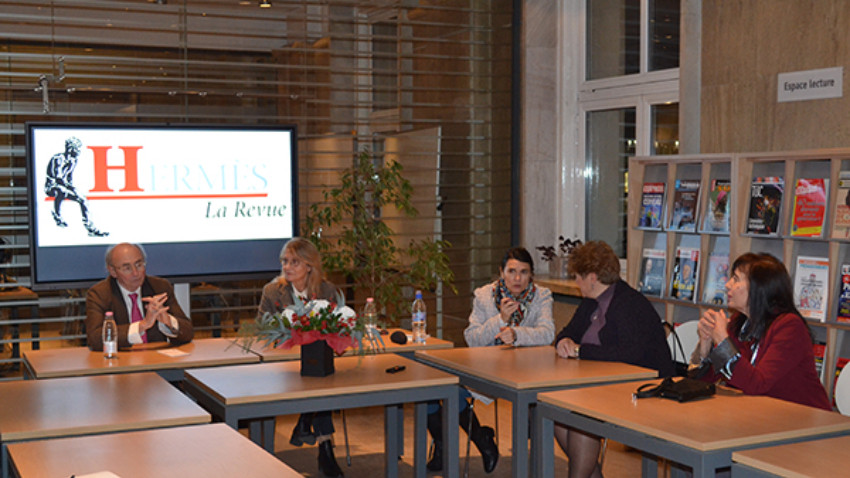Dominique Wolton, a French sociologist and author with an impressive body of work in the sphere of communications, technologies, globalism, the building of Europe and cultural diversity, paid a visit to Bulgaria for the opening of the Bulgarian office of the HERMES science journal, which he founded in 1988 and is director of to this day. In Wolton’s words, during its 35-year long history, the journal has been endeavouring to subject communication to interdispilinary analysis, in its connectedness with humans, technologies, cultures and societies, with 2,000 authors contributing over the years. At open lectures at the St. Kliment Ohridski University in Sofia, Dominique Wolton presented his ideas on communication as a constant process of negotiation, immeasurably more complex than information, regardless of the speed of technologies.

In an interview with Radio Bulgaria, Dominique Wolton explained the meaning of the term invented by him “incommunication” – a prerequisite for coexistence, as opposed to both communication and acommunication – a radical rejection of communication that can only lead to war and violence.
The communication among us largely hinges on stereotypes:
“A stereotype is a caricature of the person one is talking to, an obstacle to communication, yet without stereotypes I cannot start talking to the other person because they resemble me,” Wolton explains.
Officialese, riddled as it is with clichés, is no less complex, it is false, yet it is an indirect way we can talk to one another and is essential to dialogue. “Stereotypes, officialese need to be criticized, but we mustn’t be so naïve as to think we can talk to each other freely.”
So, how is the dialogue between Eastern and Western Europe coming along?
“Communism split Europe in half. During the 60 years of communism, in Western Europe there was freedom and democracy. It seems to me that the unification of 1990 didn’t go well, because East Europeans didn’t fully understand what was going on in the West. And, most of all, Western Europe was not curious enough about what Eastern Europe had done and its resistance against communism. Both sides need to make an effort – Eastern Europe to comprehend that its history is different, and we in Western Europe to understand the history of Eastern Europe and to not be so arrogant.”
Dominique Wolton, whose own works have been translated into 23 languages, believes that diversity of languages is vital and that the translator is a “facilitator of differences”. The multiplicity of languages is, in effect, the biggest political battle, alongside the environment, because it underlies cultural diversity. Native languages need to be preserved, and unless they are, over time this will engender ideological and political conflicts.

United Europe, which is part of this complicated environment, is a Utopia, Dominique Wolton believes. “A map of the world that does not include Utopia is not worth even glancing at,” Oscar Wilde says, but isn’t there a paradox here because what makes a Utopia utopian is that it does not exist?
“That is true,” the French sociologist replies. “Utopia does not exist but it makes human progress possible. Europe is a case in point. There are 27 countries, we are not very fond of each other, we have our disputes and violent history, yet we are trying to build a community, and we are succeeding. The lesson we are being taught is humbling – we are building it even though we do not get along. At the same time, it is teaching us an incredible lesson about utopias, because despite the difficult communication, we are still capable of talking to one another and doing something together. In politics, Utopia is essential.”
Photos: uni-sofia.bg
Three-time world champion and Olympic weightlifter Carlos Nasar will be holding a special event with the Bulgarian community in London on 23 November. According to the organisers, it will be an open conversation in which Nasar will discuss his journey..
On 16 November, we celebrate Caritas Day, when we honour the Catholic Church’s charity organisation that brings hope to those in need through care and acts of mercy . It reminds us that financial gain is not what matters most. What truly matters is..
The first museum of investment gold is welcoming visitors in Plovdiv who want to learn more about the history of money and its connection to gold – from the birth of gold, its cosmic origin, and its journey to Earth, to how this precious metal has..

+359 2 9336 661
